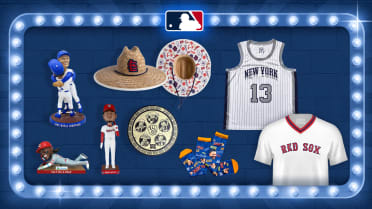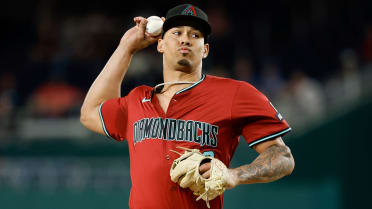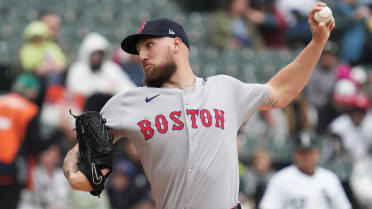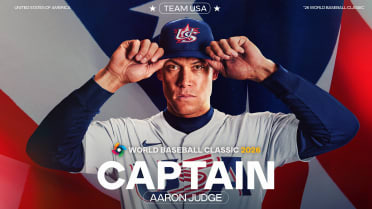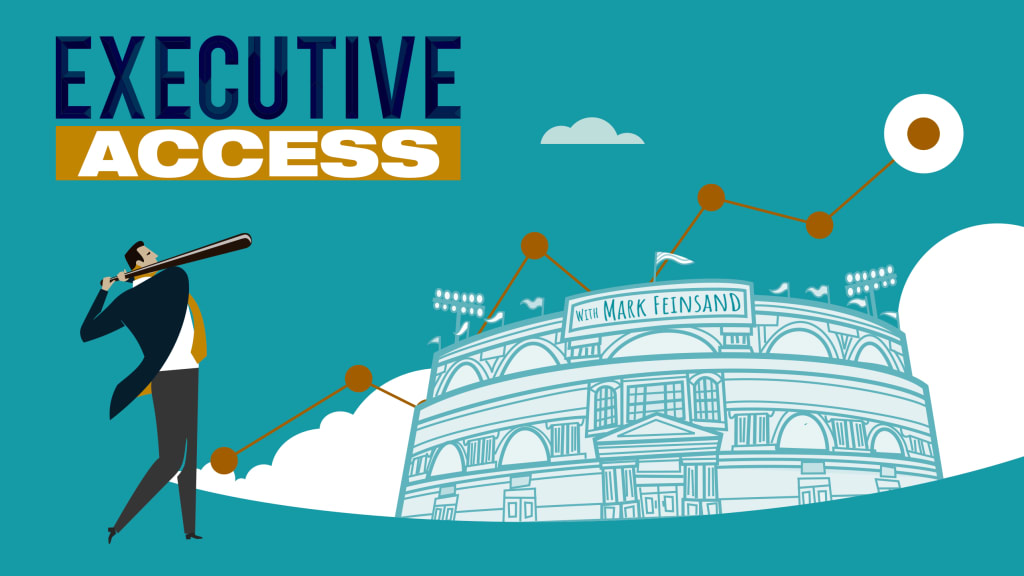
There is no executive in baseball with a background quite like Sig Mejdal. He’s dealt blackjack and worked for NASA, but nothing grabbed his attention quite the way baseball did, so at the age of 38, he decided to pursue his passion, landing a job with the Cardinals to build an analytics department.
Nearly two decades (and two teams) later, Mejdal has three World Series rings and is now doing his part to turn the Orioles around as Baltimore’s VP and assistant general manager, analytics.
MLB.com’s Mark Feinsand recently sat down with Mejdal to discuss his unique career path, baseball’s analytic explosion and much more in the latest edition of Executive Access.
This interview has been edited for length and clarity.
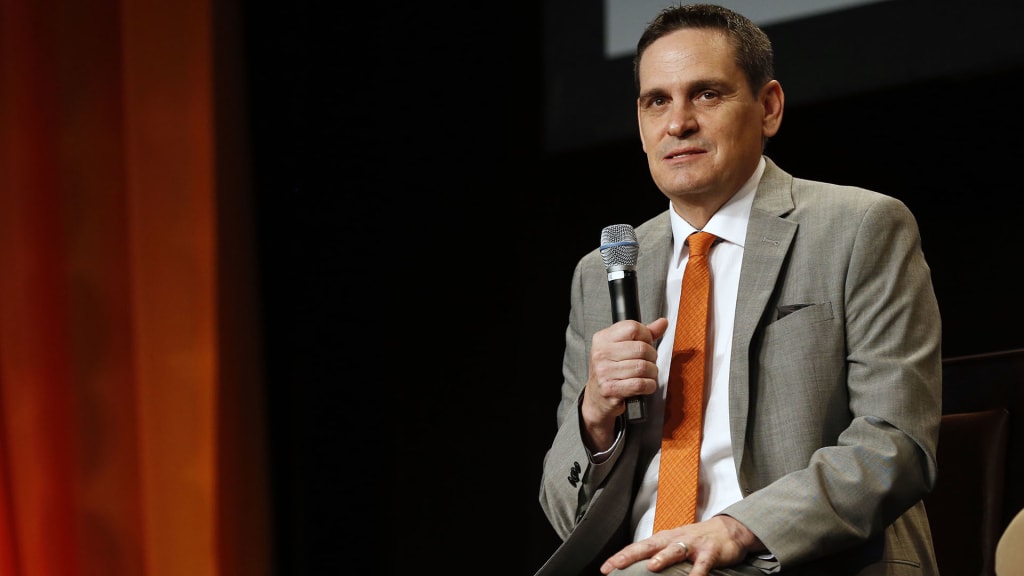
MLB.com: You grew up in the San Jose area. What was your favorite team?
Mejdal: The Oakland A’s. We had BART transportation, so before we could drive, it was easy to hop on BART and go to day games. It was much warmer than Candlestick Park at that time.
MLB.com: You were a SABR member when you were a kid and you were fascinated with the stats on the back of baseball cards. Was that a sign of what you're looking to do long term?
Mejdal: So were my neighborhood friends. We would play All-Star Baseball and Strat-O-Matic and we would keep track of the stats. I think what was different between me and the others is it just never went away.
MLB.com: Given where you ended up in your career, it's funny to think that you would have been fascinated by the stats on the back of baseball cards, which are now largely irrelevant in terms of analyzing a player.
Mejdal: We've gotten better stats, but at that time, that was all there was. When you have nothing other than batting average, home runs and RBIs, it does paint a picture; perhaps not as clear as what we could do today, but that was it. It was just as fascinating back then as I think some of the new metrics are now.
MLB.com: You received your Bachelor's degrees in mechanical engineering and aeronautical engineering from UC Davis in 1989, then went on to get Master's degrees in operations research and cognitive psychology from San Jose State University. What career path did you envision as you were completing these degrees?
Mejdal: I was one that was always searching for a career path. I never was clear on what I wanted to do. I was never completely inspired with engineering or my work out of college and was probably the one searching for something better, so I didn't have a real good idea. The cognitive psychology, the human factors, seemed a bit more interesting than the engineering I was doing, and the NASA work was interesting, but it still wasn't really motivating me like I could see other people getting motivated in their work life. That all changed when Moneyball came out in 2003. I had a, ‘Ah! That's what would motivate me.’
MLB.com: What was it about the story that grabbed you?
Mejdal: First and foremost, it was, ‘Man, why didn't I think of this?’ I was involved in the research since I was a kid, but nobody really cared at that time; there was no Baseball Prospectus or a following like there is now. It never occurred to me that I would be anything other than an outsider in his free time doing fascinating stuff. When I read the book, I was like, ‘Oh, my God; the team in my own backyard had hired somebody with a background somewhat similar to me.’ I regret never having the imagination to think that this was a possibility before the book came out. I remember thinking, ‘I have to let the teams know that I'm here and I'm willing to relocate.’ I thought by the end of the month I would have a job. I figured all the teams were admiring what Oakland was able to do with their budget. I couldn't have been more wrong.
MLB.com: You were a biomathematician at NASA. What did you actually do there?
Mejdal: It was a project related to sleep and performance. At that time, the debilitating effects of wakefulness and recuperating effects of sleep were sort of a black box. Quite a few universities and research groups had done research in this area with a similar battery of tests, so we had a lot of data; if you've been up 40 hours, what's your performance level? If you had four days of four hours of sleep, what's your performance level?
MLB.com: You went to the 2003 Winter Meetings in New Orleans to look for a job. What was that experience like?
Mejdal: It was both exciting and like humiliating. Most of the kids there are 22 years old, recently graduated or about to graduate. I was a decade and a half older than them, I had a ‘career’ and I'm standing there with them trying to identify somebody who looks important as he walks from the elevator to the front door to go track him down and give him a brochure I made of why he needs to hire me. I mostly got brushed off, so it was humiliating, but there was something exciting, too.
MLB.com: You were probably the only person at NASA trying to get a job at the Winter Meetings.
Mejdal: I tracked down J.P. Ricciardi as he was walking and introduced myself; he said, ‘Oh, the NASA guy.’ It was memorable in that I had a weird name and I was a NASA guy; they would remember me, but they weren't hiring me.
MLB.com: You landed your first job in baseball in 2005 with the Cardinals. How did that finally come about?
Mejdal: I had sent unsolicited proposals on valuing pre-arb players or how to draft in a more evidence-based way to GMs, assistant GMs and owners. I had sent them to John Mozeliak, who was the assistant GM of the Cardinals at that time. The owner had just brought in Jeff Luhnow, a complete outsider, and Mo had passed it on to Jeff and the owner. That sparked their interest.
I had talked to Rick Hahn of the White Sox about an internship; I was willing to quit my job and come for an internship. He said he was rescinding the internship if I got a full-time offer with the Cardinals, so when the full-time offer came, that was a no-brainer. I found out where St. Louis was and was on my way.
MLB.com: Analytics departments were few and far between back in 2005. What was it like to be on the ground floor of this fairly new operation?
Mejdal: I don't think I appreciated that I was showing up in an industry just as it was about to significantly change. I think I was the fourth analyst in baseball, and now there's close to 500. I didn't have that perspective. I was just happy to be working for the St. Louis Cardinals. In hindsight, it was quite an unusual alignment of the planets that Bill DeWitt and Jeff Luhnow were both motivated to take advantage of this more quickly than the competition. I didn't just get a job in baseball; I was in the middle of this revolution.
MLB.com: I'm sure you never could have forecasted in 2005 how prevalent analytics would become in the game. When did you first realize this was taking hold of the entire sport?
Mejdal: There's something in [the] industry called the innovation adoption curve; it’s the speed at which we adopt televisions or cell phones or some new technology. Initially, it's sort of slow and it seems linear, but it's really the tip of this exponential explosion. When I was in St. Louis, I didn't have the foresight to realize what was coming; I thought it was slow and linear and incremental. Fast forward a few years in Houston and the explosion was clear. That's probably the first time I realized it was taking over front offices and revolutionizing the decision making going on.
MLB.com: So many people who work in front offices are baseball lifers; did you feel accepted initially, or did you feel like a bit of an outsider?
Mejdal: I still feel like a bit of an outsider. I definitely felt like an outsider there in St. Louis -- and frankly, we were. Jeff Luhnow was brought in not because anybody working in the Cardinals' front office wanted him, but brought in by the owner and given responsibilities that many people work their whole career for when he became the scouting director. You can imagine the skepticism, the pushback; that is natural when something like that happens. The only thing worse would be if he was the owner’s son.
I would see the treatment he got from many, and he got the brunt of it. I was this person he brought in to help him that was always asking people questions, so I didn't receive the treatment he got, but it was clear he was an outsider and I felt to some degree like that, too.
MLB.com: In 2012, you joined the Astros as director of decision sciences. The title got a lot of press, but how did the job itself differ from what you had been doing in St. Louis?
Mejdal: The pushback that there was in St. Louis in some areas of baseball ops to analytics or evidence-based decision making was not unique to St. Louis; that was going on in the industry at that time. Fast forward seven years and Jeff got the job not as scouting director, but as general manager; so much of the pushback that the industry was experiencing, Jeff was going to create an organization in which that pushback was minimized. Healthy skepticism is great, but digging your heels in and refusing to question convention is not great. The biggest difference was that we imagined evidence-based decision making, and the search for innovations in this conventional organization was going to permeate the entire organization. In St. Louis, it was mostly the Draft, a bit of player development and a bit of the Major League decisions.
MLB.com: During the early years in Houston, the results on the field were not good, but the club was building a top farm system. Was there a sense internally that you knew what you had coming and that this plan was on its way to working?
Mejdal: I’ll say yeah, but looking back, I think I had more optimism than I should have had because I didn't realize the change that was about to take place in baseball. I was filling in the future with the past, and what we had experienced in St. Louis. The evidence of other teams doing this was slow, incremental and linear, so I had imagined it was going to continue slow, linear and incremental and we would have the same drafting advantage in Houston that we did in St. Louis. Now, looking back, that was naïve. In about 2013, there was a ‘Holy s---! The rest of the league is doing this!’ Luckily, that was about the same time that we had made some sense of the TrackMan data, so there was this other innovation that we imagined taking advantage at about the same time that that the buffet table was now crowded with everybody and their brother.
MLB.com: Before the 2016 season, your title changed to special assistant to the GM/process improvement. I saw Jeff called you the team's ‘futurist.’ How much do you enjoy trying to figure out where the industry is going next?
Mejdal: I love it. I think that's the type of thing I was looking for prior to baseball and never found; the idea that there might be a better way of doing this and clues to it might be in data we already have or technology that could provide data, then through the analysis of that data, you might find an inefficiency that if you have the right culture, you can take advantage of. To me, that is the most exciting type of work there is. To be able to do it in baseball is just icing on that cake.
MLB.com: When you're trying to present data to players, is the most challenging part finding the right way to deliver information to each individual?
Mejdal: It was the most difficult for me because I had 0.0 training in this. My background was in analytics, so I was pretty good at these processes. But both in academia and then at NASA Ames, you do the work, you do the analysis, throw in a p value there, present it and that's the end of it. The data drives the day. Evidence-based decision making is like the air you breathe. That's how it is in academia and that's how it was at NASA Ames, but in the real world, and especially in baseball, that's not the way things work. I was completely unprepared for that. I was treating scouts and baseball decision-makers as if they were NASA scientists or university professors. They’re not. The area where they diverge is how you get them to consider something; to have an open mind for a willingness to change. I didn't even know there was a field called change management, but when I look back on it, I was in the field of change management and I didn't know the first thing about it. I'm a lot less bad now than I was 18 years ago in St. Louis, but I was as bad as anybody with no knowledge, no experience, no appreciation that there might be a better way of doing things than treating everybody like they're NASA scientists.
MLB.com: Your contract with the Astros expired after the 2018 season and you joined the Orioles when Mike Elias became the GM. Aside from your relationship with Mike, what drew you to Baltimore?
Mejdal: With the Astros, they were as good a team as there was in baseball and their player development system was as strong as any. But I noticed that I wasn't as inspired as I was with the Astros when they were losing 100 games. I didn't imagine that getting better as time went on. I think I realized something about myself; I enjoy the struggle of creating something new in an organization and less so the maintenance of the status quo.
I was hoping that there would be a team that wanted to make significant change and that somehow they would appreciate me. I didn't imagine Mike Elias was going to have interest as a GM; I don't believe he'd had those requests before. I had already let my contract expire, then Mike Elias was getting that interest. I think it made sense for both of us to be willing to go to the same place; I would have a GM that I didn't have to convince that this is useful. I'd have one that I have worked with for 12 years who experienced firsthand what we did in St. Louis and Houston, and he would have someone who could build the analytics department.
We had talked about it, but the chances of that lining up were still slim. John and Louis Angelos became interested in the both of us and it just worked out; it wasn't any part of my master plan when I let the contract expire. It was just another case of good luck.
MLB.com: You've been in the game now for 18 years. How have your philosophies and views of the game changed from the time you first got into it to now?
Mejdal: The biggest change I've experienced is that I was naïve in comprehending the difficulty in getting reasonable human beings to change for the good of them, the players and the organization. It just wasn't this arms race of analytics when I started; it is now, and that's another clear realization of how baseball has changed. I miss the good old days when for most teams, the perfect number of analysts to have was zero. As far as the game, it's still this fascinating game of grown men playing in the dirt. That hasn't changed at all, though my views of analytics, innovation and change management have all become more mature.
MLB.com: I think the most interesting thing that I found during my research is that you've been to more than 80 weddings -- and almost none of them are family.
Mejdal: It’s 97 now. I’m waiting for my friends’ kids to get married. I was never that inspired with engineering, but it came easily. In college, I socialized a lot and had a lot of friends. Even after college, working for the government isn't the most demanding of jobs, so I had a lot of time to enjoy life and make friends. It couldn't have been for the presents I was giving them; it was always just towels. I just got invited to a lot of weddings. Hanging out with all your friends, free food, free drinks, usually in a beautiful place. What’s not to like?
MLB.com: Similarly to what happened in Houston, the Orioles' farm system has become very highly ranked over the past year or two. Given the division you’re in, how crucial is it to develop that pipeline?
Mejdal: This is a simple one to answer. It's mandatory. You can't sustain success in this division -- or really any division in baseball now -- without having a strong pipeline. It’s well known the state of the player development system when we got here, especially international. They weren't signing their own players internationally and that's such a handicap. If you're going to compete in baseball, I think close to 30 percent of the players out there are signed internationally, so to punt on that bucket seems masochistic. It’s mandatory to be as optimal as you can in how you draft and how you develop, not only domestic players, but internationally. I think that was some of the attraction of [the Orioles] hiring Mike and myself; our reputation both in St Louis and in Houston was related to the pipeline production.
MLB.com: The Orioles haven't won the World Series since 1983. What do you think it would mean to the city to bring a title to Baltimore?
Mejdal: I didn't know the first thing about Baltimore. Coming here, it's immediately evident how important this team is to the city and the pride they have in this team. It reminds me of St. Louis fans. To imagine them having a winner again is completely exciting. It will be exciting to see them get that not only from a personal standpoint, but for what would be just in this world for a city that loves baseball so much.
Mark Feinsand, a senior national reporter, originally joined MLB.com as a reporter in 2001.

